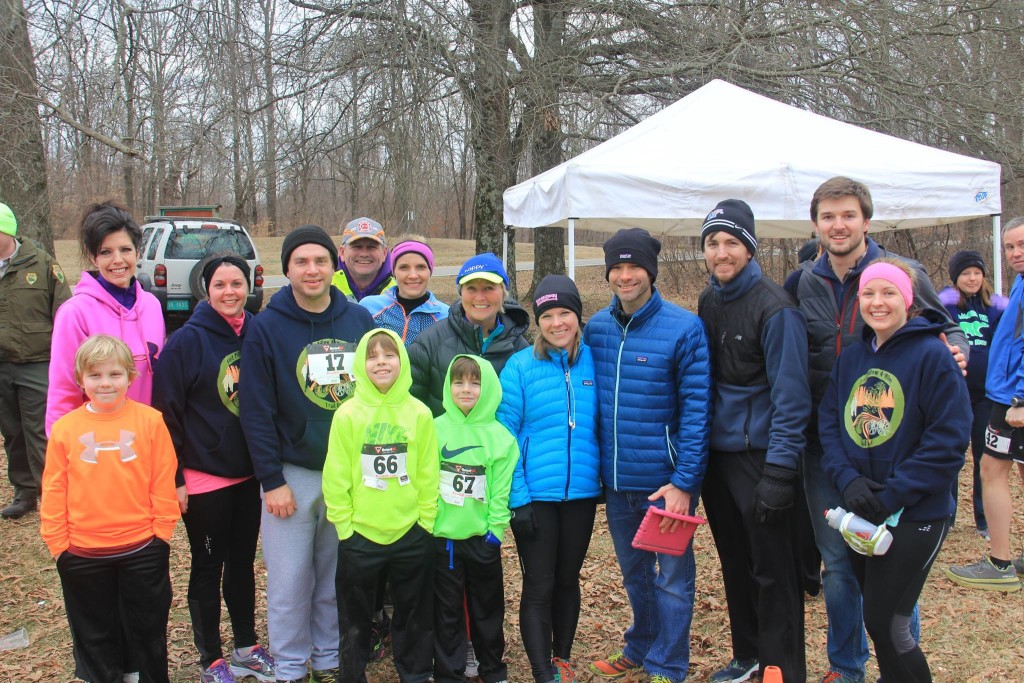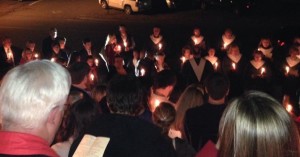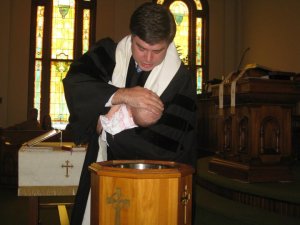Faith and Learning
2010 Bethel University Convocation Address
Introduction
It is an honor to speak to you this morning. It is especially an honor to be speaking at a University that maintains a vital connection to the Church. In 2008 I received a gold medal and congratulatory letter from the University of Glasgow announcing that I had won the Cleland and Rae Wilson Prize that year. I searched for information on the award to discover that it originated in 1846 ‘to be awarded in alternate years to a student of Divinity and a student of Physics’. I found this to be a fascinating combination. Would we find a benefactor today who would want to equally endow both of those subjects? Contemporary American society assumes a hostility between faith and scholarship. The relationship between science and theology was described by one famous book as one of warfare. The disengagement of the our institutions of higher learning from their founding Churches has been documented by James Tunstead Burtchaell in his Dying of the Light, and by George Marsden in his Soul of the American University as well as others. The regression can be seen in the fact that in 1881 80% of American colleges were religious or private institution; in 2001 the numbers were reversed, only 20% were connected to a religious tradition. This separation has been to the detriment of both the Church and the academy, and so I would like to invite you to reflect on the necessity of intellectual development and reason to the Christian faith and how, in light of this, we might see education as a Christian vocation.
A Rational Faith
Christianity is a rational faith. It is no accident that so many of our universities had their origins in our churches. Christianity is a revealed religion, and it is revealed through writing. To believe that God has shown us what we are to believe and how we are to live through literature demands that our cognitive faculties are used to receive the revelation. There is a vocabulary to learn, syntax to understand, and nuances of idioms to discern. Not only does the means of revelation demand the use of our reason, nearly every essential doctrine that is revealed supports an understanding of a God that is approached through rational means: the method of Creation is said to be by speech; the Incarnation is described by St. John as the taking on of flesh by the Logos (a rich word translated as word, but also conveying reason and purpose – the root of our word ‘logic’); and our understanding of Mission is that it is by rational persuasion, never by coercion or force, and for the purpose of making disciples or students. This is not to say that we somehow obtain God through the mere use of our unaided reason, but it is to say that Faith comprises a rational assent to a specific, definable content.
For the most part this understanding has been evident in the life of the Church. Upon his conversion, the Second Century Church Father Justin Martyr continued to the wear his philosopher’s robe as a sign that he had discovered the “true philosophy”. During the so-called ‘Dark Ages’, classical Greek and Roman literature was preserved in the libraries of Christian monasteries, which is to say learning itself, not exclusively religious learning was valued within these communities. The Middle Ages saw the development of our Universities, which grew out of educational institutions of the Church. The rise of Classical Humanism and the Renaissance went hand in hand with the Protestant Reformation. The cry ad fontes was the motto for both movements – the font being the writings of Aristotle or Seneca for one, and the Greek and Hebrew texts of the Scriptures for other. With the Reformation came new academies, plans for public education, and a rise in literacy. The near universal literacy in the West today owes much to a belief in the doctrine of the authority of the Bible. If the scriptures are authoritative, then everyone should have access to them by being taught to read and having the Bible translated into the languages of the people. While popular portrayals often give a simplistic view of the Church repressing scientific discovery, the belief in an ordered universe created by a rational God, and the attempt to ‘think God’s thoughts after him’ gave a foundation for modern science. Isaac Newton for example was as much of scriptural scholar as scientist, the man who formulated the theory of gravity wrote, ‘Gravity explains the motions of the planets, but it cannot explain who set the planets in motion. God governs all things and knows all that is or can be done’. As Church Historian Jaroslav Pelikan has said the Church, while always more than a school, is never less than a school.
But now we find ourselves in time that assumes a necessary division separating faith and reason, science and religion, sacred and secular. This assumption has been evidenced in sermons I have heard warning high-school graduates of the dangers of university professors. On the other hand I have seen the genuine surprise shown by one of my friend’s colleagues upon being introduced to him. My friend is a botanist, the surprise was that a scientist could be such close friends with a member of the clergy. We have gotten to this place of sequestering faith apart the rest of our life by intellectual laziness. In the face of challenges raised by the enlightenment and modernity, the Church has too often retreated from the difficult task of offering a well thought out answer. Instead, many have responded by casting faith as a private experience. It is evident in phrases such as ‘I know Christianity is true because I can just feel it’, ‘I believe the Bible because I tried it and worked for me’, ‘I don’t try to argue with someone about faith I just say look at the difference in my life’ or in the words of one of our Easter hymns, ‘you ask me how I know he lives, he lives within my heart’. Or even worse, faith for some is no longer an intellectual assent to rational propositions but a blind leap in spite of evidence to the contrary. ‘Don’t think, just believe’. Compare these common statements with the the defense of the faith offered by St. Paul who regularly debated others appealing to eye-witness testimony and the public account of Christ’s life.
This privatizing of faith is a working defense because personal experience is out of the range of attack – no one is a greater authority on your experience than yourself.But precisely because your inner experience is beyond contact with others it demands that faith becomes segregated from the rest of our life. It becomes what we do on Sundays with little connection with the other activities or other people. Only in living this way can we come to expect politicians to make the ridiculous claim that they are deeply religious, but their religion is private and will not affect their decisions. And I fear that for many, you will learn how to think one way in your profession that is completely separate from how you think in Church. ‘Faith’ will remain within the realm of private, inner experience.
Education as Christian Vocation
 Clifford Stoll, an astronomer, formerly at Berkeley, tells the story of trying to escape the mayhem of student riot in the ‘60s as an undergraduate at the University of Buffalo. He ducked into Hayes Hall and climbed the bell tower, as the police and students clashed on the campus below he read these words inscribed on the bell: ‘All truth is one in this light: may science and religion endeavor here for the steady evolution of mankind from darkness to light, from narrowness to broadmindedness, from prejudice to tolerance. It is the voice of life which calls us to come and learn’.
Clifford Stoll, an astronomer, formerly at Berkeley, tells the story of trying to escape the mayhem of student riot in the ‘60s as an undergraduate at the University of Buffalo. He ducked into Hayes Hall and climbed the bell tower, as the police and students clashed on the campus below he read these words inscribed on the bell: ‘All truth is one in this light: may science and religion endeavor here for the steady evolution of mankind from darkness to light, from narrowness to broadmindedness, from prejudice to tolerance. It is the voice of life which calls us to come and learn’.
I encourage you to heed that invitation from the voice of life. Seek to ‘Love the Lord your God with all of your mind’. If you understand that pursuing education is a way to glorify God it will transform what you are doing here. We have made the mistake of telling young people to go to school to get a degree so that you can get a better job and buy more toys. How utterly selfish. If your time here is merely to get a piece of paper that will help you get a better job then most of it will be wasted. But if you see it as answering a call ‘to move from darkness to light’ you will ask more than ‘Is this going to be on the final exam?’. If you see understand how your lecture attendance, hours of research, and struggles with precisely how to state a concept can help you progress ‘from narrowness to broadmindedness’ then there is certainly more motivation to persevere in the hard work than if you are driven by what might lookgood on a resume. Would you rather return home for winter break and tell your family and former teachers that you are trying to get a piece of paper to increase your earning potential, or that you are developing every aspect of your being in pursuit of a divine calling to lead people ‘from prejudice to tolerance’?
Seeing education as a spiritual calling is for each one of you. Some of you might ask how can the study of computer systems or sociology or music glorify God or be Christian. One of the symptoms of the way the Church has been disengaged from the ‘secular’ is that we think for something to be Christian means it has to be stamped with a fish symbol like HIS CPA, a ‘Christian CPA Firm’ of Duluth, Georgia which promises to bring ‘Christian Values to Accounting and Tax Preparation in Metro Atlanta’. (I think your deduction would be the same regardless of the preparer’s faith.) We think, a ‘Christian’ writer is one whose books talk about God a lot and are sold in Lifeway instead of Barnes and Noble. Christian music becomes separated with distinct labels, stations and bands that sound sort of like top 40 bands but singing ‘Oh Jesus’ instead of ‘Oh Baby’. The result being that, to quote Hank Hill, it ‘doesn’t make Christianity better it only makes Rock and Roll worse’. But all truth is one, therefore, every field of learning finds its place within a scriptural worldview. We are given the Revelation within various genres of literature, narrating a redemption that takes place in history: among particular people, in specific nations, within a defined location. The Revelation points us to creation itself as ‘declaring the glory of God’ and claims that humanity was created and placed in the garden with the charge to cultivate it. Therefore no branch of learning is alien to God: we serve him by pursuing the study of language, history, geography, political science, botany, or astrophysics. To write well and honestly is glorifying the God who gave us language whether the work is published in the McKenzie Banner or in Christianity Today. To pursue genetic research with the best tools available points us to the one and same Source of truth sought by the Biblical scholar working with textual criticism.Whatever develops culture; whatever is good, true, or beautiful is of God and is life enhancing and God exalting.
Continue your Spiritual Development
 Growing up in a small Church I wasn’t in a group with a paid youth minister. An older member, Lenford Nabors, served as the youth teacher. He was in his seventies, a retired combustion engineer. We learned complicated math concepts as much as Bible stories. (I remember conformal mapping being a particularly favorite topic of his.) Lenford modeled as well as anyone an well-integrated mind. One of the best pieces of advice he ever gave us was to continue to develop our spiritual understanding. He explained that as we continued in our education, the difficulty would come not in encountering new ideas. The difficulty would be if we encountered new ideas without having continued to grow in our spiritual understanding and maturity. In other words, an understanding of the faith that hasn’t developed since 8th Grade Sunday School will appear childish compared to the sort of material covered in a college philosophy course. Questions raised by graduate level chemistry studies will probably not find adequate answers in Bible studies that have not gone deeper than Veggie Tales. But if you continue to study and mature spiritually your faith is strong enough to be engaged with a deeper understanding of the world. So continue your spiritual maturity. Take advantage of the resources and opportunities available here at a University committed the growth the whole person to develop a robust faith. Continue to grow in your understanding of God so that you are not tempted to separate how you think in Church from how you think in the office, or lab, or studio. Both the Church and our society desperately need Christians whose intellectual life is so integrated that they can enter into business, art and science completely engaged and completely faithful.
Growing up in a small Church I wasn’t in a group with a paid youth minister. An older member, Lenford Nabors, served as the youth teacher. He was in his seventies, a retired combustion engineer. We learned complicated math concepts as much as Bible stories. (I remember conformal mapping being a particularly favorite topic of his.) Lenford modeled as well as anyone an well-integrated mind. One of the best pieces of advice he ever gave us was to continue to develop our spiritual understanding. He explained that as we continued in our education, the difficulty would come not in encountering new ideas. The difficulty would be if we encountered new ideas without having continued to grow in our spiritual understanding and maturity. In other words, an understanding of the faith that hasn’t developed since 8th Grade Sunday School will appear childish compared to the sort of material covered in a college philosophy course. Questions raised by graduate level chemistry studies will probably not find adequate answers in Bible studies that have not gone deeper than Veggie Tales. But if you continue to study and mature spiritually your faith is strong enough to be engaged with a deeper understanding of the world. So continue your spiritual maturity. Take advantage of the resources and opportunities available here at a University committed the growth the whole person to develop a robust faith. Continue to grow in your understanding of God so that you are not tempted to separate how you think in Church from how you think in the office, or lab, or studio. Both the Church and our society desperately need Christians whose intellectual life is so integrated that they can enter into business, art and science completely engaged and completely faithful.
 I ran my second trail race a few weekends back. I’ve run on and off for several years now, but not too many races and not on trails. I wouldn’t have run this one had it not been for Baker, a brother in Christ and a committed runner. And by committed I mean enthusiastically addicted. He organized the race last year and invited me so I signed up. Now if most people had asked me to try out a trail run I would have found an excuse to not participate. I’m usually moving at a pretty leisurely pace, on pavement, with headphones blocking out the world. But Baker’s enthusiasm for running is so contagious that I felt compelled to give it a shot, and I’m glad I did.
I ran my second trail race a few weekends back. I’ve run on and off for several years now, but not too many races and not on trails. I wouldn’t have run this one had it not been for Baker, a brother in Christ and a committed runner. And by committed I mean enthusiastically addicted. He organized the race last year and invited me so I signed up. Now if most people had asked me to try out a trail run I would have found an excuse to not participate. I’m usually moving at a pretty leisurely pace, on pavement, with headphones blocking out the world. But Baker’s enthusiasm for running is so contagious that I felt compelled to give it a shot, and I’m glad I did.





